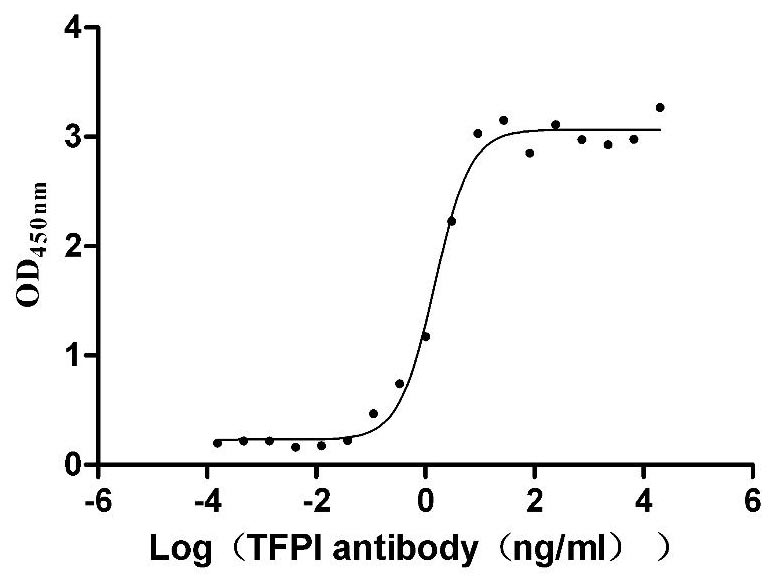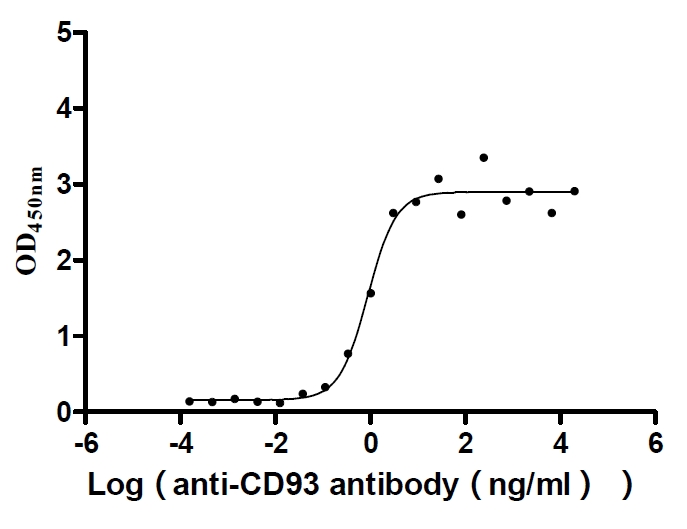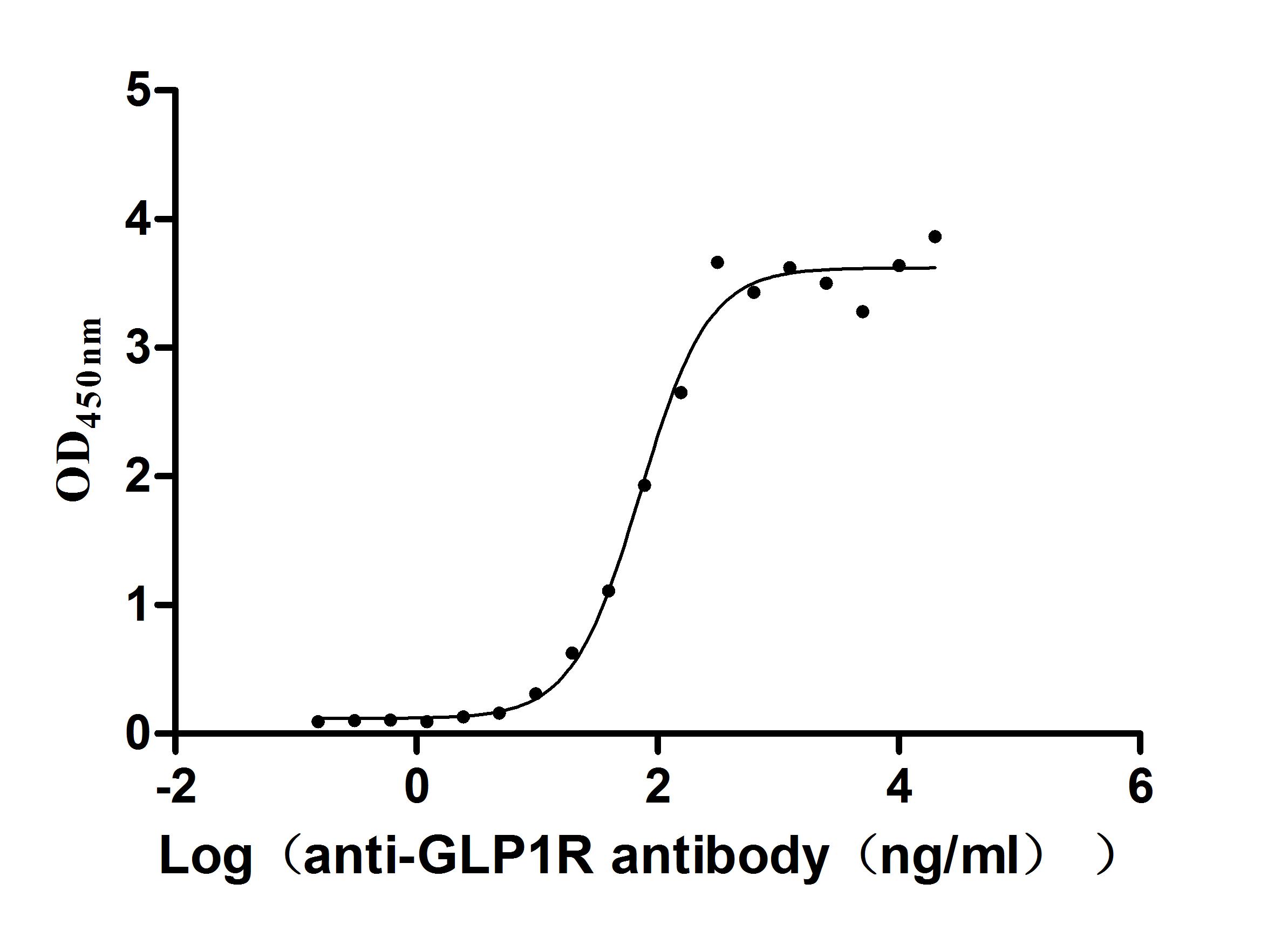Recombinant Mouse Induced myeloid leukemia cell differentiation protein Mcl-1 homolog (Mcl1), partial
-
货号:CSB-EP013588MO
-
规格:¥1836
-
图片:
-
(Tris-Glycine gel) Discontinuous SDS-PAGE (reduced) with 5% enrichment gel and 15% separation gel.
-
Based on the SEQUEST from database of E.coli host and target protein, the LC-MS/MS Analysis result of CSB-EP013588MO could indicate that this peptide derived from E.coli-expressed Mus musculus (Mouse) Mcl1.
-
Based on the SEQUEST from database of E.coli host and target protein, the LC-MS/MS Analysis result of CSB-EP013588MO could indicate that this peptide derived from E.coli-expressed Mus musculus (Mouse) Mcl1.
-
-
其他:
产品详情
-
纯度:Greater than 90% as determined by SDS-PAGE.
-
基因名:
-
Uniprot No.:
-
别名:Mcl1Induced myeloid leukemia cell differentiation protein Mcl-1 homolog; Bcl-2-related protein EAT/mcl1
-
种属:Mus musculus (Mouse)
-
蛋白长度:Partial
-
来源:E.coli
-
分子量:48.9kDa
-
表达区域:1-308aa
-
氨基酸序列MFGLRRNAVIGLNLYCGGASLGAGGGSPAGARLVAEEAKARREGGGEAALLPGARVVARPPPVGAEDPDVTASAERRLHKSPGLLAVPPEEMAASAAAAIVSPEEELDGCEPEAIGKRPAVLPLLERVSEAAKSSGADGSLPSTPPPPEEEEDDLYRQSLEIISRYLREQATGSKDSKPLGEAGAAGRRALETLRRVGDGVQRNHETAFQGMLRKLDIKNEGDVKSFSRVMVHVFKDGVTNWGRIVTLISFGAFVAKHLKSVNQESFIEPLAETITDVLVRTKRDWLVKQRGWDGFVEFFHVQDLEGG
Note: The complete sequence including tag sequence, target protein sequence and linker sequence could be provided upon request. -
蛋白标签:N-terminal 6xHis-SUMO-tagged
-
产品提供形式:Liquid or Lyophilized powder
Note: We will preferentially ship the format that we have in stock, however, if you have any special requirement for the format, please remark your requirement when placing the order, we will prepare according to your demand. -
缓冲液:Tris-based buffer,50% glycerol
-
储存条件:Store at -20°C/-80°C upon receipt, aliquoting is necessary for mutiple use. Avoid repeated freeze-thaw cycles.
-
保质期:The shelf life is related to many factors, storage state, buffer ingredients, storage temperature and the stability of the protein itself.
Generally, the shelf life of liquid form is 6 months at -20°C/-80°C. The shelf life of lyophilized form is 12 months at -20°C/-80°C. -
货期:Basically, we can dispatch the products out in 1-3 working days after receiving your orders. Delivery time may differ from different purchasing way or location, please kindly consult your local distributors for specific delivery time.Note: All of our proteins are default shipped with normal blue ice packs, if you request to ship with dry ice, please communicate with us in advance and extra fees will be charged.
-
注意事项:Repeated freezing and thawing is not recommended. Store working aliquots at 4°C for up to one week.
-
产品描述:
The Mouse Mcl1 recombinant protein is conventionally generated by transfecting the recombinant DNA into a host cell, and then the host cells are cultured and the transfected DNA transcribed and translated. Different host cells can be chosen for recombinant protein production, the choice of which depends on the type of protein that needs to be generated, its functional activity and requisite yield. We choose E.coli as the expression system for this Mcl1 protein expression because bacteria cells are easy to culture, grow fast and produce high yields of recombinant protein.
MCL1 is a protein coding gene that encodes Induced myeloid leukemia cell differentiation protein Mcl-1 homolog. According to some studies, MCL1 may have the following features.
MCL1 is a gene expressed in programmed myeloid cell differentiation and shares sequence similarity with BCL2. The deubiquitinase USP9X stabilizes MCL1 and promotes tumor cell survival. Sensitivity to antineoplastic chemotherapeutics is regulated by MCL1 and FBW7. The MCL1 inhibitor S63845 was tolerable and potent in different cancer models. MCL1 provides a window into the role of the BCL2 family in cell proliferation, differentiation and tumorigenesis. MCL1 is an important regulator of GC-induced apoptosis. SCF FBW7 regulates apoptosis by targeting MCL1 for ubiquitination and destruction. -
Datasheet & COA:Please contact us to get it.
相关产品
靶点详情
-
功能:Involved in the regulation of apoptosis versus cell survival, and in the maintenance of viability but not of proliferation. Mediates its effects by interactions with a number of other regulators of apoptosis. Isoform 2 has antiapoptotic activity.
-
基因功能参考文献:
- These results indicate that the outer membrane protein MCL1 is degraded by the VCP-UBXD1 complex and that the process is promoted by the presence of mutant Huntingtin. PMID: 27913212
- miR-29b suppressed cellular proliferation and promoted apoptosis of pulmonary artery smooth muscle cells, possibly through the inhibition of Mcl-1 and CCND2. PMID: 29662889
- s treated Mcl-1(+/-) heterozygous mice, which have a ~50% reduction in MCL-1 protein in their cells, with a broad range of chemotherapeutic drugs. Monitoring of treated mice revealed that a wide range of chemotherapeutic drugs had no significant effect on the general well-being of Mcl-1(+/-) mice with no overt damage to a broad range of tissues. PMID: 28800129
- analysis of how a hydrophobic staple induces an unanticipated structural rearrangement in Mcl-1 upon binding PMID: 29339518
- Mcl-1 is a disease-specific target of Cdk5, which associates with Cdk5 under basal conditions, but is not regulated by it. PMID: 28751497
- These findings elucidate a crucial molecular pathway of B cell selection in the earliest phases of activation by identifying a novel link between B cell receptor affinity and BAFF-R signaling towards Mcl-1. PMID: 27762293
- Even though the Mcl-1 protein in Mcl1-flox-del homozygous animals is normal, the males were still infertile. PMID: 27906183
- The findings support a model in which survival is determined by quantitative participation of multiple anti-apoptotic proteins, BCL2, Mcl1, and BCL2A1, rather than by a single anti-apoptotic protein. PMID: 28362427
- This dynamic change in B cell survival mechanisms is unique to Epstein-Barr virus-infected cells and relies on regulation of MCL-1 mitochondrial localization and BFL-1 transcription by the viral EBNA3A protein. PMID: 28425914
- Overexpression of Mcl-1 via the hemopoietic cell specific vavP-Mcl-1 transgene markedly exacerbates and accelerates the lpr phenotype. The progressive splenomegaly and lymphadenopathy displayed by lpr mice was far more severe in Mcl-1tg/lpr littermates PMID: 27813531
- Endothelial cell -specific deletion of Mcl1 resulted in a dose-dependent increase in endothelial cell apoptosis in the angiogenic vasculature and a corresponding decline in vessel density. PMID: 26943318
- Our findings indicate that MCL-1 expression is an important biomarker of TEC survival PMID: 28972012
- These results identify MCL-1 as a critical prosurvival protein for preventing beta-cell death and clarify the mechanisms behind its downregulation by proinflammatory cytokines. PMID: 28667119
- These data show that Mcl-1 is dispensable for the regulation of apoptosis during infection with different large DNA viruses.Bcl-XL, on the other hand, can be important to maintain survival of virus-infected cells PMID: 27537523
- BCL-XL expression promotes survival of immature B cells, expression of BCL-2 is important for survival of mature B cells and long-lived plasma cells (PC), and expression of MCL-1 is important for survival throughout B-cell development. PMID: 27560714
- miR-32/MCL-1 pathway members were identified as key early genetic events driving melanoma progression. PMID: 27846237
- GSK3B-MCL1 signaling to regulate axonal autophagy might be important for the successful completion of Wallerian degeneration. PMID: 28053206
- Specific downregulation of Mcl-1 significantly increases apoptosis of peritoneal macrophages and that the MAPK signaling pathway is the primary mediator of Mcl-1 expression. PMID: 26876933
- MCL1 plays a pivotal role in Leydig-cell steroidogenesis, and might provide novel insights into metabolic regulation in this cell PMID: 26995740
- Although loss of one Mcl-1 allele did not noticeably impair the survival of normal B lymphoid cells, it markedly diminished the survival of Proto-Oncogene Proteins c-myc overexpressing B cell progenitors. PMID: 26947081
- MCL-1 loss in early B-lymphoid progenitors delayed MYC-driven lymphomagenesis. PMID: 26962682
- High Mcl-1 levels enhanced mTOR phosphorylation and augmented the differentiation of terminal effector cells and effector memory CD8 T cells. PMID: 26855329
- Data suggest Leishmania donovani exploits host anti-apoptotic protein MCL-1 to prevent apoptosis of host macrophages upon treatment with antiparasitic agents; thus, L. donovani protects its host, a factor in progression of visceral leishmaniasis. PMID: 26670606
- Data demonstrate that soluble factors from MM cells are able to generate MDSC through Mcl-1 upregulation. PMID: 25871384
- a mechanism of inverse coregulation between BECN1 and MCL1 significantly contributes to their opposing roles in tumorigenesis PMID: 25837021
- There is a non-redundant pathway linking IL-15 to Mcl1 in the maintenance of NK cells and innate immune responses in vivo. PMID: 25119382
- s recognize MCL-1 as the essential survival factor required for conservation of the postnatal PMF pool, growing follicle survival and effective oocyte mitochondrial function. PMID: 25950485
- Tax interacted with and activated TRAF6, and triggered its mitochondrial localization, where it conjugated four carboxyl-terminal lysine residues of MCL-1 with lysine 63-linked polyubiquitin chains PMID: 25340740
- deletion of Mir155 prevents Fas-induced hepatocyte apoptosis and liver injury through the up-regulation of Mcl1. PMID: 25794705
- Inverse co-regulation of Beclin 1 and Mcl-1 represents a mechanism of functional counteraction in cancer. PMID: 25472497
- miR-29a is involved in the pathogenesis of ulcerative colitis by regulating intestinal epithelial apoptosis via Mcl-1. PMID: 25674218
- MCL1, but not that of BAK, forms stable heterodimeric complexes with cBID in a manner adjustable by membrane cardiolipin content and curvature degree. PMID: 25987560
- MCL1 has lipid-dependent bimodal membrane activity. PMID: 25314294
- These results demonstrate that antagonism between PUMA and MCL-1 constitutes the major axis of control of hematopoietic stem cell survival. PMID: 25847014
- Cafestol overcomes ABT-737 resistance in Mcl-1-overexpressed renal carcinoma Caki cells through downregulation of Mcl-1 expression and upregulation of Bim expression. PMID: 25375379
- These data demonstrate that Mcl-1 is essential for mammopoiesis and identify EGF as a critical trigger of Mcl-1 translation to ensure survival of milk-producing alveolar cells. PMID: 25730472
- conditional gene deletion and loss of the granulocytic subset does not alter tumor growth or incidence in vivo PMID: 25500368
- analysis of the role of BCL-XL or MCL-1 in the development and sustained growth of thymic lymphoma elicited by loss of p53 reveals that only MCL-1 is critical PMID: 25368374
- Downregulation of Mcl-1 has anti-inflammatory pro-resolution effects and enhances bacterial clearance from the lung. PMID: 24280938
- Pro-apoptotic Bim and anti-apoptotic Mcl-1. PMID: 24825007
- Mcl-1 positively regulates cell viability and negatively regulates the bone-resorbing activity of osteoclasts both in vitro and in vivo. PMID: 24096094
- Noxa is targeted to the mitochondrial membrane where it neutralises Mcl-1 via its C-terminal BH3-domain. PMID: 23733106
- Data indicate that Mcl-1 deficient embryonic fibroblasts (MEFs) reliant only on Bcl-XL for survival, and Bax/Bak deficient MEFs support a mechanism-based induction of apoptosis. PMID: 23767404
- mouse Mcl1 is a prosurvival Bcl2 relative that blunts stress-induced apoptosis, causes male sterility, and promotes tumorigenesis PMID: 24363325
- Notch1 inhibits apoptosis of stimulated macrophages by directly controlling the mcl1 promoter. PMID: 23872918
- Mcl-1 is critical for promoting effector T-cell responses, but does so by combating pro-apoptotic molecules beyond Bim. PMID: 23558951
- Loss of parkin function through biallelic mutation of PARK2 may lead to death of dopaminergic neurons through unregulated SCF(Fbw7beta)-mediated ubiquitylation-dependent proteolysis of Mcl-1. PMID: 23858059
- data support the metabolic control of Mcl-1 expression as a key event in the effects of caloric restriction in sensitizing lymphoma cells to apoptosis PMID: 23966420
- Antiapoptotic Mcl-1 is critical for the survival and niche-filling capacity of Foxp3 regulatory T cells. PMID: 23852275
- In the absence of p27(Kip1), Mcl1 failed to induce neural progenitor cell (NPC) cell cycle exit, demonstrating that p27(Kip1) is required for Mcl1-mediated NPC terminal mitosis. PMID: 23824576
显示更多
收起更多
-
亚细胞定位:Membrane; Single-pass membrane protein. Cytoplasm. Mitochondrion. Nucleus, nucleoplasm. Note=Cytoplasmic, associated with mitochondria.
-
蛋白家族:Bcl-2 family
-
数据库链接:
KEGG: mmu:17210
STRING: 10090.ENSMUSP00000044048
UniGene: Mm.1639
Most popular with customers
-
Recombinant Human Leukocyte surface antigen CD47 (CD47), partial (Active)
Express system: Mammalian cell
Species: Homo sapiens (Human)
-
Recombinant Human Angiotensin-converting enzyme 2 (ACE2), partial (Active)
Express system: Mammalian cell
Species: Homo sapiens (Human)
-
Recombinant Human Hepatocyte growth factor receptor (MET), partial (Active)
Express system: Mammalian cell
Species: Homo sapiens (Human)
-
Recombinant Human Tumor necrosis factor receptor superfamily member 8 (TNFRSF8), partial (Active)
Express system: Mammalian cell
Species: Homo sapiens (Human)
-
Recombinant Human Claudin-18.2 (CLDN18.2)-VLPs (Active)
Express system: Mammalian cell
Species: Homo sapiens (Human)
-
Recombinant Human Tissue factor pathway inhibitor (TFPI), partial (Active)
Express system: Mammalian cell
Species: Homo sapiens (Human)
-
Recombinant Human Complement component C1q receptor (CD93), partial (Active)
Express system: Mammalian cell
Species: Homo sapiens (Human)
-
Recombinant Human Glucagon-like peptide 1 receptor (GLP1R), partial (Active)
Express system: Mammalian cell
Species: Homo sapiens (Human)

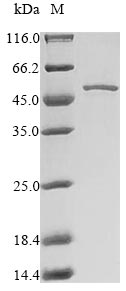
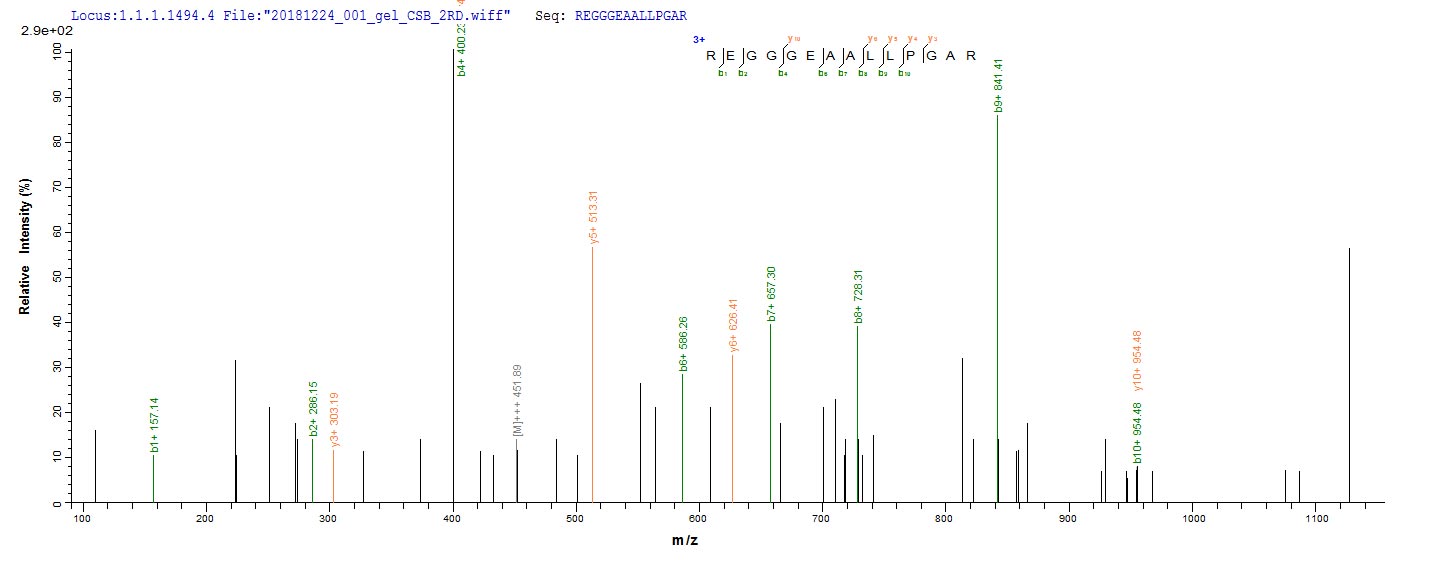
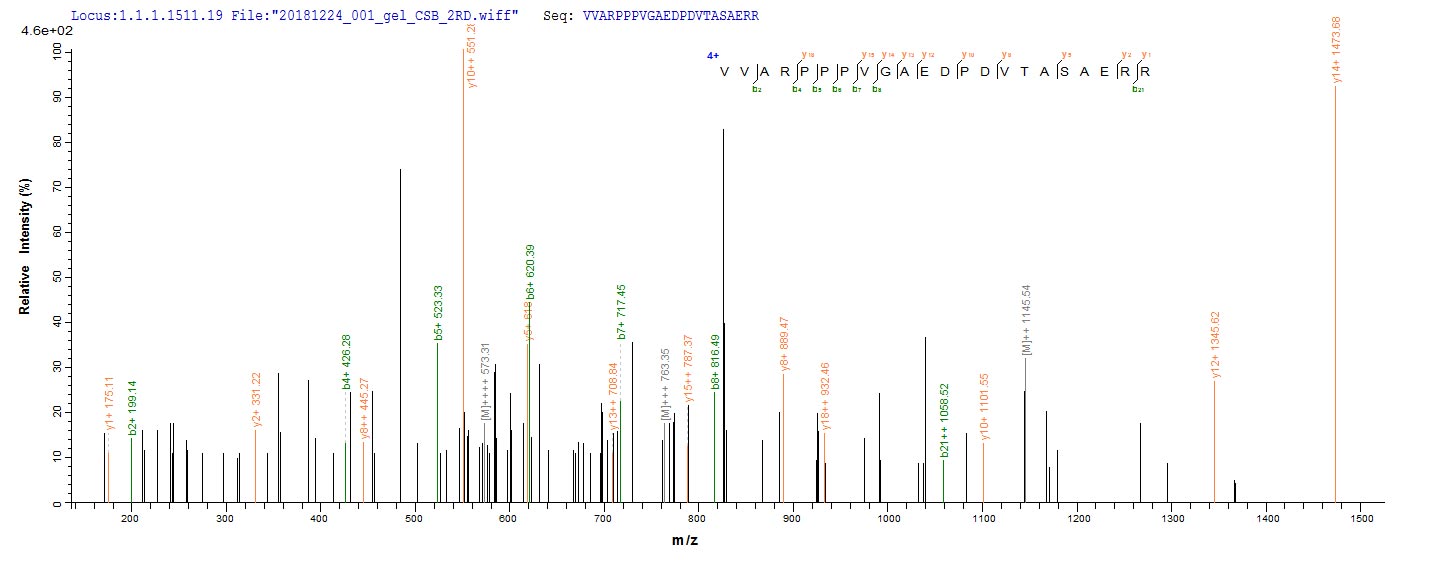

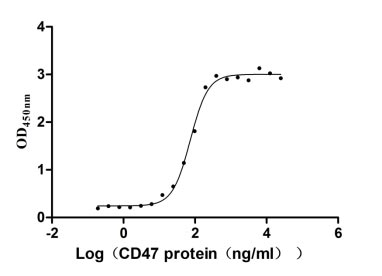
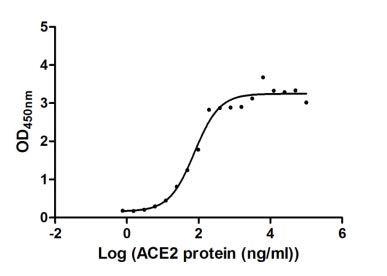
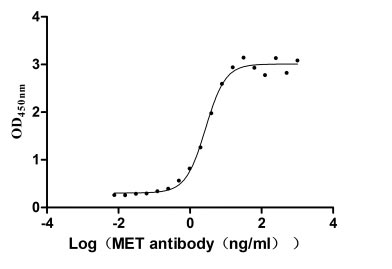
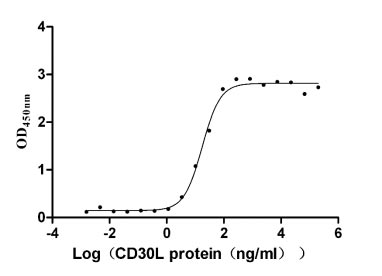
-AC1.jpg)
